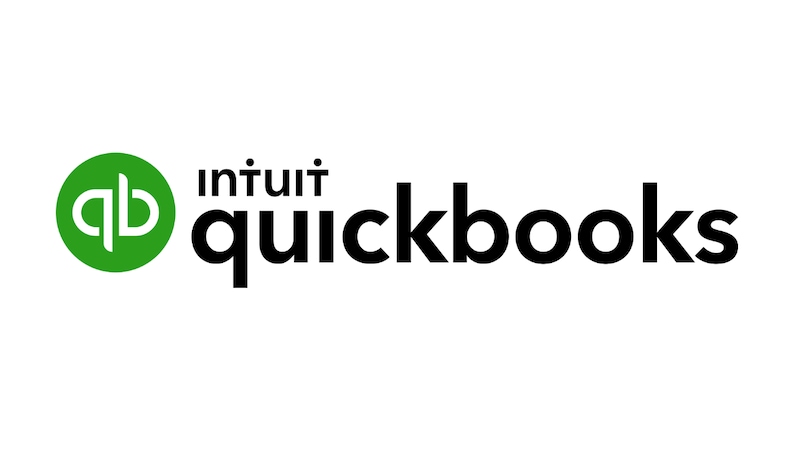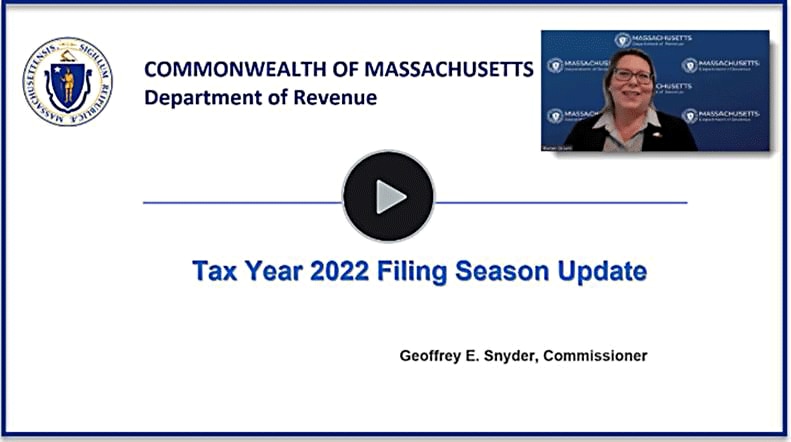Topic When is the deadline for making tax digital: The deadline for Making Tax Digital is an important date for businesses to be aware of. With the new digital tax return process in the UK, it is now easier than ever to submit VAT returns. By automatically entering start and end dates, businesses can ensure they are compliant and connected to the HMRC\'s MTD system. Stay organized and meet your VAT Return deadline by checking the HMRC VAT Returns page. Prepare for success with Making Tax Digital!
Table of Content
- When is the deadline for Making Tax Digital?
- What is Making Tax Digital and how does it affect taxpayers?
- What is the purpose of the digital tax return process in the UK?
- How does the Making Tax Digital service work?
- Is there a specific deadline for individuals to adopt the digital tax return process?
- Are there different deadlines for different types of taxes under Making Tax Digital?
- Can taxpayers request an extension for filing their taxes digitally?
- Can businesses still file their taxes manually if they are unable to comply with the digital tax return process?
- What are the consequences of not meeting the deadline for making tax digital?
- Are there any penalties or fines for non-compliance with Making Tax Digital regulations?
When is the deadline for Making Tax Digital?
The deadline for Making Tax Digital varies depending on the specific tax and the size of your business. Here is a step-by-step guide to finding the deadline for Making Tax Digital:
1. Identify the specific tax you are referring to. Making Tax Digital is a UK initiative that aims to digitize the tax system. It includes various taxes such as VAT (Value Added Tax), Income Tax, and Corporation Tax.
2. Visit the official HMRC (Her Majesty\'s Revenue and Customs) website. This is the authoritative source of information for tax-related matters in the UK.
3. Navigate to the applicable tax section. For example, if you are looking for the deadline for submitting VAT returns through Making Tax Digital, go to the VAT section.
4. Find the specific guidance on Making Tax Digital for the chosen tax. The HMRC website provides detailed information, including deadlines, for each tax category.
5. Look for the section that indicates the deadlines for Making Tax Digital submissions. It may be labeled as \"Filing and payment deadlines\" or something similar.
6. Read the guidelines and locate the specific deadline for your situation. It is important to consider factors such as your business size and turnover, as they may determine your specific submission deadline.
7. Note the deadline down and make sure to file and pay your taxes before the stated date.
Please note that tax laws and regulations can change, so it is always recommended to verify the deadlines on the official HMRC website or consult with a tax professional for accurate and up-to-date information.

READ MORE:
What is Making Tax Digital and how does it affect taxpayers?
Making Tax Digital (MTD) is an initiative introduced by the UK government to digitize and streamline the tax reporting and filing process. It is designed to make it easier for individuals and businesses to manage their taxes and ensure accuracy in reporting.
Here is how MTD affects taxpayers:
1. Scope of MTD: MTD currently applies to VAT (Value Added Tax) registered businesses with a taxable turnover above the VAT threshold of £85,000. These businesses are required to keep digital records of their VAT transactions and submit their VAT returns using compatible accounting software.
2. Digital record-keeping: Under MTD, businesses must maintain digital records of their VAT transactions. This means using software or spreadsheets that are capable of recording and storing the necessary transaction data in a digital format.
3. Digital VAT submission: Instead of manually preparing and filing VAT returns, businesses are now required to submit their VAT return data to HMRC (HM Revenue and Customs) through compatible software using an Application Programming Interface (API). This streamlines the process and reduces the likelihood of manual errors.
4. Deadlines and penalties: VAT-registered businesses affected by MTD have to comply with the quarterly VAT filing deadlines set by HMRC. Failure to meet these deadlines or non-compliance with the digital filing requirements may result in penalties being imposed by HMRC.
It is important for taxpayers to be aware of their obligations under MTD, including the deadline for making tax digital, in order to avoid any penalties and ensure a smooth transition to digital tax filing. The specific deadline for making tax digital may vary depending on individual circumstances, so it is advisable to consult HMRC or a tax professional for accurate and up-to-date information regarding deadlines and compliance requirements.
What is the purpose of the digital tax return process in the UK?
The purpose of the digital tax return process in the UK, also known as Making Tax Digital (MTD), is to modernize and simplify the way businesses report their taxes to HM Revenue and Customs (HMRC). The UK government aims to improve the accuracy and efficiency of tax reporting by transitioning from paper-based methods to a digital system.
Here are the key objectives of MTD:
1. Digital Recordkeeping: Businesses are required to maintain digital records of their income and expenses using compatible accounting software or apps. This promotes more accurate and up-to-date recordkeeping, reducing errors and the time spent on manual calculations.
2. Quarterly Reporting: Instead of submitting an annual tax return, businesses need to submit digital tax updates on a quarterly basis. This provides HMRC with more frequent data, enabling them to monitor tax liabilities more closely and address any issues promptly.
3. Amending Errors Promptly: With the digital system, errors in tax returns can be identified and corrected more quickly. Businesses have the opportunity to amend any mistakes in their digital records in a timely manner, reducing the risk of penalties.
4. Integration with Accounting Software: MTD allows businesses to connect their digital records directly to their accounting software. This integration enables data to be easily transferred and eliminates the need for manual data entry, saving time and reducing human error.
5. Streamlined VAT Reporting: The first phase of MTD focused on VAT-registered businesses. It requires them to keep digital records and submit VAT returns using compatible accounting software. This streamlines the VAT reporting process and improves compliance.
Overall, the purpose of the digital tax return process in the UK is to modernize tax administration, enhance accuracy, and simplify tax compliance for businesses. It is part of the government\'s broader initiative to create a more efficient and transparent tax system.
How does the Making Tax Digital service work?
Making Tax Digital (MTD) is a UK government initiative that aims to make tax administration more efficient, effective, and easier for businesses and individuals. The service is designed to digitize and streamline the process of submitting tax information to HM Revenue and Customs (HMRC). Here\'s how it works:
1. Registration: Businesses and individuals are required to register for MTD if they meet the eligibility criteria. This includes being a VAT-registered business with a taxable turnover above the VAT threshold (currently £85,000) or choosing to join voluntarily.
2. Digital Record-Keeping: Under MTD, businesses must keep digital records of their income and expenses using compatible software. This can include spreadsheets, accounting software, or specific MTD-ready software. Manual record-keeping using paper records is no longer acceptable.
3. Digital Submission: With MTD, VAT returns must be submitted to HMRC using compatible software. The software automatically pulls the necessary information from the digital records, performs necessary calculations, and submits the return directly to HMRC\'s MTD system.
4. Quarterly Reporting: Instead of submitting VAT returns annually or biannually, businesses are required to submit quarterly updates through MTD. These updates provide real-time information about the business\'s income, expenses, and VAT liability.
5. Bridging Software: Some businesses may need to use bridging software if they already have an accounting system that doesn\'t fully support MTD. Bridging software allows businesses to extract and submit the necessary data to comply with MTD requirements.
6. Deadlines: Businesses must adhere to the VAT return submission deadlines. These deadlines vary depending on factors such as the VAT accounting period and the payment method used (e.g., direct debit or electronic payment).
It\'s important for businesses to ensure their software is compatible with MTD requirements and that they understand the obligations and timelines associated with the service. HMRC provides guidance and support to help businesses transition to the MTD system.
Remember, MTD currently applies to VAT reporting, but there are plans to extend the service to other types of taxes in the future, such as income tax and corporation tax.
Please note that this information is based on general knowledge and may be subject to change. It\'s always recommended to check with official HMRC sources or consult with a tax professional for the most up-to-date and accurate information.
Is there a specific deadline for individuals to adopt the digital tax return process?
Based on the given search results, it seems there is no specific deadline mentioned for individuals to adopt the digital tax return process in the UK. However, it\'s important to note that Making Tax Digital (MTD) is primarily focused on businesses and their VAT returns. Initially, MTD for VAT was introduced on April 1, 2019, and businesses with a taxable turnover above the VAT threshold were required to keep digital records and submit their returns through MTD-compatible software.
It\'s always recommended to consult official sources, such as the HMRC (HM Revenue & Customs), for the most up-to-date and accurate information regarding deadlines and requirements for the digital tax return process.
_HOOK_
Are there different deadlines for different types of taxes under Making Tax Digital?
Yes, there are different deadlines for different types of taxes under Making Tax Digital (MTD). The MTD initiative is being implemented by the UK government to digitize tax reporting and payment processes.
For VAT-registered businesses with a taxable turnover above the VAT threshold (currently £85,000), the deadline for Making Tax Digital for VAT is the first VAT period starting on or after April 1, 2019. This means that businesses have to digitally submit their VAT returns using MTD-compatible software from that date onwards. If a business\'s VAT period spans April 1, 2019, then the MTD requirements will apply to the next return period.
For other types of taxes, such as income tax and corporation tax, the deadlines for Making Tax Digital have not been set yet. The initial focus of MTD is primarily on VAT. The UK government plans to gradually expand the scope of MTD to include other types of taxes, but the specific deadlines for those taxes are yet to be determined.
It is important to stay updated with HMRC announcements and guidelines regarding Making Tax Digital to ensure compliance with the tax requirements and deadlines.
Can taxpayers request an extension for filing their taxes digitally?
According to the Google search results provided, the deadline for Making Tax Digital (MTD) in the UK is not specified. However, please note that the information may have been updated or changed since the search took place.
In general, taxpayers in the UK can request an extension for filing their taxes digitally under certain circumstances. Here is a step-by-step guide on how to do so:
1. Assess your eligibility: Determine if you meet the criteria for requesting an extension. Extensions are generally granted for specific reasons such as illness, disability, or other personal circumstances that make it impossible for you to file your taxes on time.
2. Contact HM Revenue and Customs (HMRC): Reach out to HMRC directly to explain your situation and request an extension. You can contact them via phone or through their online services. Provide them with any necessary documentation or evidence to support your request.
3. Follow HMRC\'s instructions: Depending on your situation and the reason for your extension request, HMRC will provide instructions on what steps to take next. They may require specific forms to be filled out or additional information to be provided.
4. Await HMRC\'s decision: After submitting your request, you will need to wait for HMRC to review and make a decision on whether to grant you an extension. They will communicate their decision to you, usually in writing.
5. Fulfill any additional requirements: If HMRC approves your extension request, they may impose certain conditions or requirements that you must fulfill. Make sure to carefully read and follow any instructions they provide.
It is worth noting that while extensions are possible, it is generally recommended to file your taxes on time whenever possible to avoid any penalties or interest charges that may be incurred for late filing.
Please keep in mind that tax policies and procedures can vary between countries and change over time. It is always best to consult official government sources or seek professional advice for the most up-to-date and accurate information regarding tax deadlines and extension requests.

Can businesses still file their taxes manually if they are unable to comply with the digital tax return process?
No, starting from April 1, 2019, businesses in the UK who are eligible for VAT (Value Added Tax) are required to comply with the Making Tax Digital (MTD) system. This means they must keep digital records and submit their VAT returns to HMRC (Her Majesty\'s Revenue and Customs) through MTD-compatible software.
Filing taxes manually is no longer an option for businesses that fall within the scope of MTD. HMRC has mandated the use of digital software to streamline the tax reporting process and increase accuracy.
If a business is unable to comply with the digital tax return process due to various reasons, it is recommended to seek professional advice from HMRC or a tax advisor. They may be able to provide alternative solutions or guide the business on how to meet the MTD requirements.
While there may be exceptions or special circumstances, it is important for businesses to understand and comply with the requirements of the MTD system to avoid penalties or fines imposed by HMRC.
What are the consequences of not meeting the deadline for making tax digital?
The consequences of not meeting the deadline for Making Tax Digital can vary depending on the specific circumstances. Here are the potential consequences:
1. Penalties: HM Revenue and Customs (HMRC) may impose penalties for not complying with the Making Tax Digital requirements. The penalties can range from a percentage of the tax owed to a fixed amount, depending on the severity of the non-compliance.
2. Late Submission Fines: If you fail to submit your digital tax return by the deadline, you may be subject to late submission fines. These fines can increase the longer the delay continues.
3. Loss of Time and Resources: Not meeting the deadline means you will have to spend additional time and resources to rectify the situation. This can include dedicating extra efforts in catching up with digital record-keeping and making the necessary digital submissions.
4. Increased Scrutiny: Non-compliance with Making Tax Digital may raise concerns with HMRC, potentially leading to increased scrutiny of your tax affairs. This could result in more detailed investigations and audits, which can be time-consuming and may lead to further penalties if irregularities are found.
5. Interruption to Business: If you do not meet the deadline, you may face disruptions in your business activities. This can include delays in claiming tax refunds, difficulties in managing cash flow, and potential disruptions in accessing certain government services.
It is important to note that the specific consequences may vary depending on individual circumstances and the nature of the non-compliance. To ensure compliance and avoid potential penalties, it is advisable to understand the specific deadlines and requirements of Making Tax Digital and take appropriate action to meet them in a timely manner.

READ MORE:
Are there any penalties or fines for non-compliance with Making Tax Digital regulations?
Yes, there can be penalties or fines for non-compliance with Making Tax Digital (MTD) regulations in the UK. Here is a detailed answer:
1. Understanding Making Tax Digital: Making Tax Digital is a government initiative in the UK aimed at digitizing the tax system. It requires businesses to keep digital records and submit their VAT returns using compatible software.
2. Compliance Requirements: To comply with MTD regulations, businesses must use compatible software to keep digital records of their sales, purchases, and expenses. They need to submit their VAT returns through HMRC\'s MTD system rather than manually filing paper returns.
3. Penalty Regime: If a business fails to comply with the MTD regulations, HMRC may impose penalties or fines based on the severity of the non-compliance.
4. Penalties for Late Submission: If a business fails to submit their VAT returns by the deadline, penalties may be levied. The penalties are usually calculated as a percentage of the VAT amount that is outstanding and can increase based on the number of late filings.
5. Penalties for Inaccurate Information: If a business submits inaccurate or incorrect VAT information, they may also face penalties. Again, the penalties can be a percentage of the VAT amount that was understated or calculated incorrectly.
6. Appeals and Mitigation: In some cases, businesses may have reasonable grounds for appeal or may be able to mitigate penalties. It is important to review HMRC\'s guidelines on penalty appeals and seek professional advice if necessary.
7. Communication from HMRC: HMRC provides information and guidance to businesses regarding MTD regulations, including updates on any penalties or fines. It is crucial for businesses to stay informed about the latest requirements and deadlines to avoid non-compliance and potential fines.
Please note that the specific details of penalties and fines may vary based on individual circumstances, and it is advisable to consult HMRC\'s official guidelines or seek professional advice for accurate and up-to-date information.
_HOOK_









